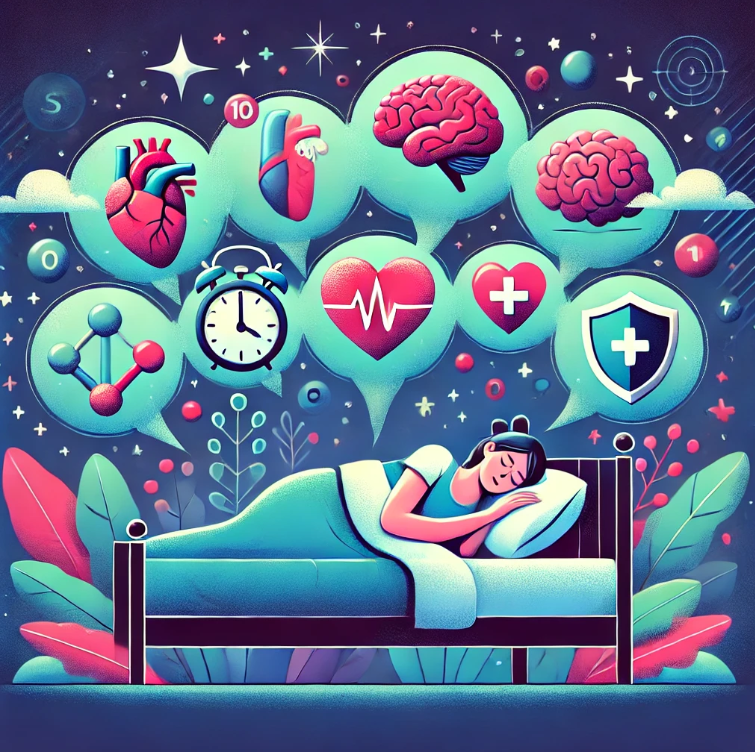Sleep is an essential pillar of good health, yet late-night sleep problems are increasingly becoming a common issue for people across the globe. Whether it’s tossing and turning in bed or experiencing broken sleep every night, sleep disturbances can negatively impact physical and mental well-being. This blog delves into the causes, solutions, and FAQs surrounding late-night sleep issues to provide you with the knowledge and tools to achieve better sleep quality.
Understanding Late Night Sleep Problems
Late-night sleep issues manifest in various forms, including difficulty falling asleep, staying asleep, or waking up too early without being able to fall back asleep. These disruptions can leave you feeling groggy, irritable, and fatigued throughout the day.
Common Complaints:
- Lay in bed for hours can’t sleep
- Broken sleep every night
- Why can’t I sleep at night even when I’m tired?
The Five Types of Sleep Disorders:
- Insomnia – Difficulty falling or staying asleep.
- Sleep Apnea – Interrupted breathing during sleep.
- Restless Legs Syndrome (RLS) – Uncomfortable sensations in the legs, creating an urge to move them.
- Narcolepsy – Sudden attacks of sleep.
- Circadian Rhythm Disorders – Misalignment between your body’s internal clock and the external environment.
Causes of Late-Night Sleep Problems
1. Stress and Anxiety:
When your mind is overwhelmed with worries or thoughts, it can be challenging to relax enough to fall asleep.
2. Lifestyle Factors:
- Consuming caffeine or alcohol late in the evening.
- Excessive screen time before bed.
- Irregular sleep schedules.
3. Underlying Medical Conditions:
Conditions such as chronic pain, respiratory issues, or neurological disorders can contribute to disrupted sleep.
4. Environmental Factors:
Noise, uncomfortable mattresses, or unsuitable room temperatures can make it difficult to achieve restful sleep.
5. Hormonal Changes:
Hormonal imbalances during pregnancy, menopause, or due to thyroid issues can also disrupt sleep patterns.
Sleeping Problems Solutions
1. Create a Sleep-Inducing Environment:
- Keep your room cool, dark, and quiet.
- Invest in a comfortable mattress and pillows.
2. Stick to a Sleep Schedule:
Maintain consistent sleep and wake times, even on weekends, to regulate your body’s internal clock.
3. Limit Stimulants:
Avoid caffeine, nicotine, and alcohol at least 4-6 hours before bedtime.
4. Practice Relaxation Techniques:
- Meditation, deep breathing, or progressive muscle relaxation can calm your mind.
- Try guided sessions like “how to cure insomnia in 12 minutes.”
5. Address Underlying Issues:
Consult a healthcare professional to manage any medical conditions contributing to your sleep problems.
The Impact of Sleep Deprivation
Chronic sleep deprivation can have far-reaching consequences, including:
- Physical Health: Increased risk of obesity, diabetes, and heart disease.
- Mental Health: Greater susceptibility to anxiety and depression.
- Cognitive Function: Impaired concentration, memory, and decision-making skills.
Table: Effects of Sleep Deprivation
| Aspect | Short-Term Effects | Long-Term Effects |
|---|---|---|
| Physical Health | Fatigue, weakened immunity | Obesity, diabetes, heart disease |
| Mental Health | Mood swings, irritability | Depression, anxiety |
| Cognitive Function | Reduced alertness, memory lapses | Cognitive decline |
When to Seek Professional Help
If you find yourself repeatedly asking, “Why am I having trouble sleeping at night all of a sudden?” it might be time to consult a specialist. Persistent sleep issues, like insomnia, can significantly affect your quality of life.

Treatments to Explore:
- Cognitive Behavioral Therapy for Insomnia (CBT-I): Helps identify and change behaviors that hinder sleep.
- Medications: As a last resort, doctors may prescribe sleep aids for short-term use.
FAQs About Late-Night Sleep Problems
1. What are the best sleeping problem solutions? Creating a consistent bedtime routine, avoiding stimulants, and practicing relaxation techniques are among the most effective solutions.
2. Why do I lay in bed for hours and can’t sleep? This can be due to stress, overthinking, or poor sleep hygiene. Consider mindfulness practices to quiet your mind.
3. Why can’t I sleep at night even when I’m tired? Factors like stress, anxiety, or underlying health issues could be at play. Evaluating your sleep habits and environment may help.
4. What are the 5 types of sleep disorders?
- Insomnia
- Sleep apnea
- Restless legs syndrome (RLS)
- Narcolepsy
- Circadian rhythm disorders
5. How to cure insomnia in 12 minutes? Guided meditation, progressive muscle relaxation, or breathing exercises can be effective for calming your mind and body.
6. Why am I having trouble sleeping at night all of a sudden? Sudden sleep difficulties may be triggered by stress, lifestyle changes, or health conditions. Identifying the cause is crucial.


